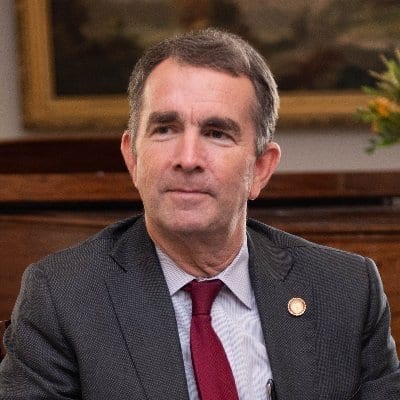Virginia Commits to End Coal-Fired Generation
The post Virginia Commits to End Coal-Fired Generation appeared first on POWER Magazine.

Virginia on April 12 became the latest state to commit to a phase-out of fossil fuel-powered electricity generation, as Gov. Ralph Northam signed the Virginia Economy Act into law.
The legislation sets new requirements for energy efficiency among the state's leading utility companies, and also requires most of the state's six remaining coal-fired power plants to close by year-end 2024. The law requires Dominion Energy Virginia and Appalachian Power to switch to 100% carbon-free energy by 2045 and 2050, respectively. Failure to meet the deadlines would bring financial penalties, with that money used to partly fund new outreach programs and job training in disadvantaged communities.
Dominion earlier this year set a net-zero carbon goal, saying it intends to reach its carbon dioxide and methane reduction goals by 2050.
Two plants operated by Dominion-the 624-MW Virginia City Hybrid Energy Center, which came online in 2012 and burns coal and biomass; and the 881-MW Clover plant, which came online in 1995-could continue to operate. The new law allows more operating time for coal units jointly owned with electric cooperatives and select plants that co-fire biomass.
The Virginia City plant would still have to close by 2030 if it cannot demonstrate an 83% reduction in carbon emissions by that year. The Clover plant, jointly owned by Dominion Energy and Old Dominion Electric Cooperative, would have to close by 2045 at the latest. Both Dominion and Appalachian Power can petition the Virginia State Corporation Commission for an exemption if a shutdown of a plant would raise reliability or security concerns.
Northam, in a statement issued by his office Sunday, said, "These new clean energy laws propel Virginia to leadership among the states in fighting climate change. They advance environmental justice and help create clean energy jobs. In Virginia, we are proving that a clean environment and a strong economy go hand-in-hand." Northam, a Democrat, took office in January 2018 after previously serving as the state's lieutenant governor.
The Virginia Clean Economy Act was passed as House Bill 1526 and Senate Bill 85. It incorporates clean energy directions and energy efficiency measures that Northam established by an executive order issued in September 2019.
The legislation includes provisions designed to expand access in low-income communities to jobs in the clean energy sector. It also has requirements for companies to prioritize hiring local workers as they add power generation from renewable resources such as wind and solar power.
'Most Significant Clean Energy Law'"This is the most significant clean energy law in Virginia's history," said Democratic state Sen. Jennifer McClellan in the statement from the governor's office. McClellan said the new law should create thousands of jobs in the state's energy industry and "break Virginia's reliance on fossil fuels."
The act supports pilot programs aimed at increasing energy efficiency. Those programs are now designated as being "in the public interest," and the state's Department of Social Services and the Department of Housing and Community Development will lead a joint effort to establish a new program to "reduce the energy burden for low-income customers." The legislation includes language that makes 5,200 MW of offshore wind generation and 16,100 MW of solar and onshore wind generation "in the public interest" as well.
Will Cleveland, senior attorney at the Southern Environmental Law Center, in an email to POWER said, "This is undoubtedly the boldest climate action legislation ever to come out of the South. SELC is proud to have worked with the Governor's administration, dedicated legislators, and many climate champions to see this legislation through, along with several key complementary bills. We look forward to continuing to work together to ensure the best possible implementation of this groundbreaking legislation and to ensure that this transformation of our energy landscape benefits all Virginians equally."
Dominion Energy last year announced plans to build the 2.64-GW Virginia Offshore Wind Project, shortly after Northam issued an executive order calling for 2.5 GW of offshore wind by 2026.
Virginia in recent years has received about 70% of its power generation from coal, natural gas, and oil-fired units. It has added three large gas-fired plants since 2014: the 1,773-MW Greensville County Power Station, a POWER Top Plant in 2019; the 1,472-MW Warren County Power Station; and the 1,466-MW Brunswick County Power Station, a POWER Top Plant in 2017.
Northam on Sunday also announced proposed amendments to the state's Clean Energy and Community Flood Preparedness Act. This legislation establishes a cap-and-trade program for carbon dioxide emissions in order to bring these levels into compliance with the Regional Greenhouse Gas Initiative (RGGI), a market-based program employed in several states in the U.S. Northeast to reduce pollution. Northam in a statement said the proposals would clarify the Virginia Community Flood Preparedness Fund, a loan program to support flood prevention and economic resilience among coastal communities.
"By joining RGGI, Virginia will take part in a proven, market-based program for reducing carbon pollution in a manner that protects consumers," the governor said. "I am proposing important refinements and I look forward to signing it into law soon."
-Darrell Proctor is associate editor for POWER (@DarrellProctor1, @POWERmagazine).
The post Virginia Commits to End Coal-Fired Generation appeared first on POWER Magazine.